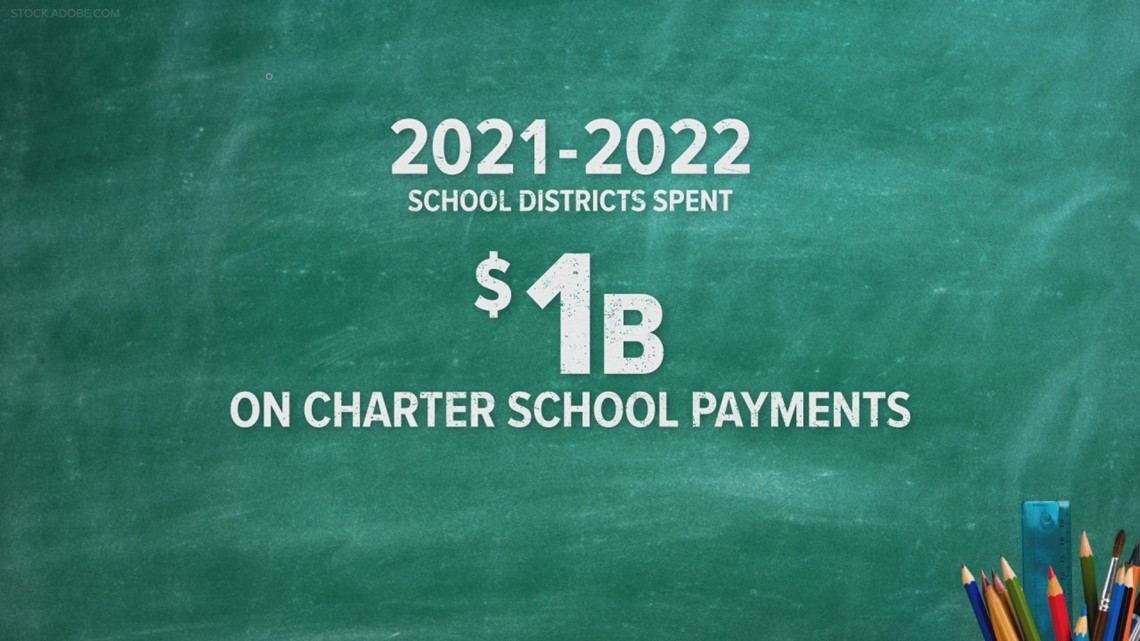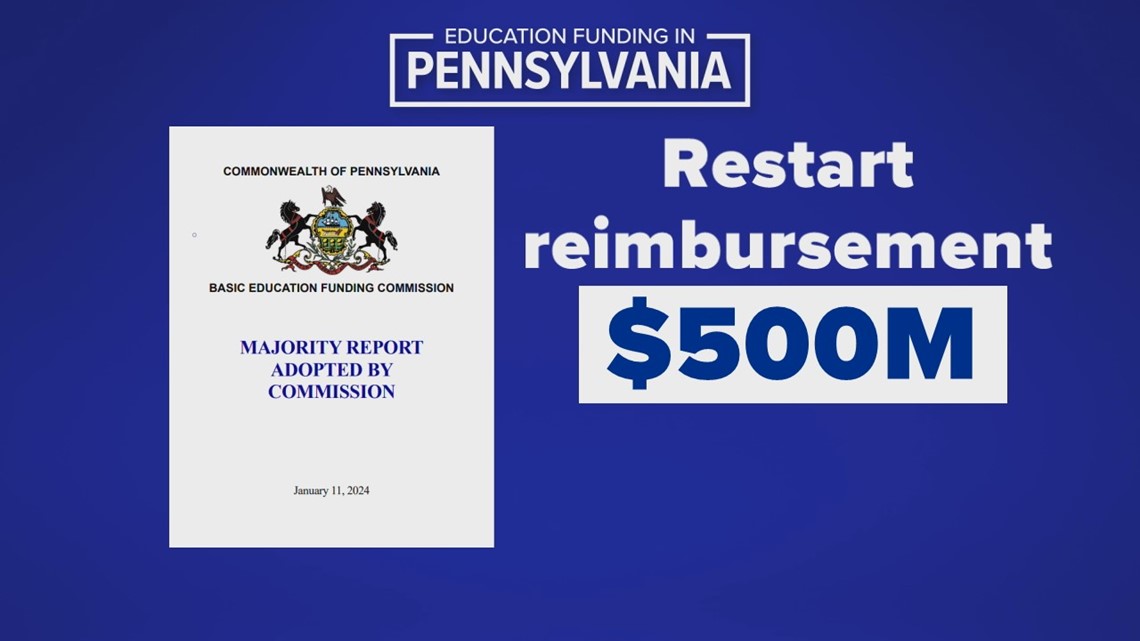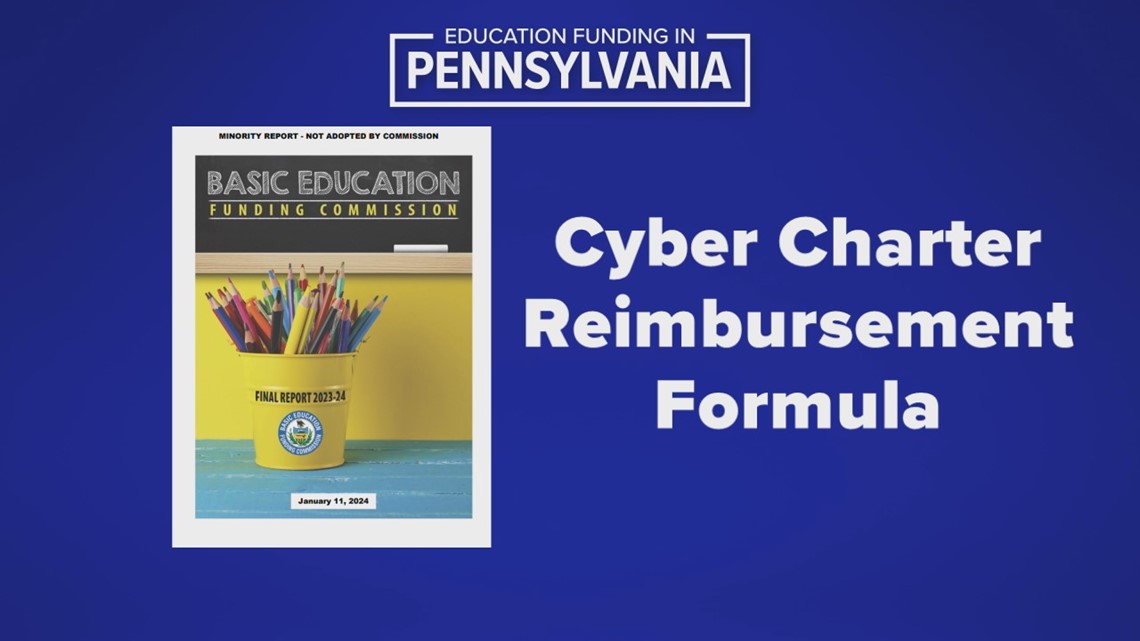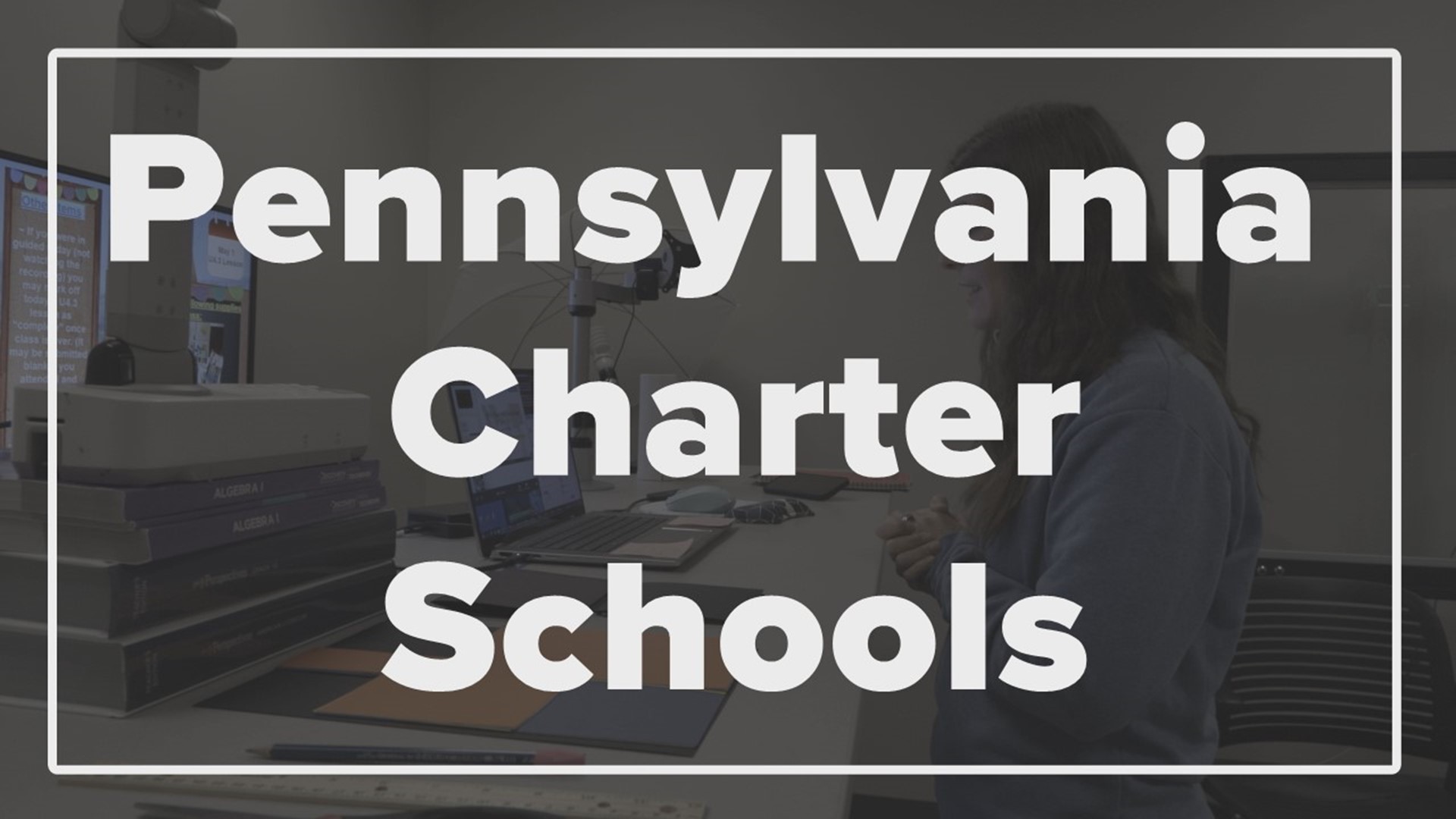HARRISBURG, Pa. — Pennsylvania has quickly become the cyber charter capital of the nation, with more than 60,000 students enrolled.
Data from the Pennsylvania School Board's Association State of Education report shows while traditional schools have lost students in recent school years, cyber charter schools have seen a boom.


Cyber charter school regulations haven't changed since 2002, but technology and the education landscape have.
Pennsylvania Teacher of the Year Ashlie Crosson said while the learning environment is malleable, the basics still work. She believes the classroom is still the best place to deliver educational material.
"I think COVID kind of showed us that there is still a value to our classrooms," she said.
The pandemic forced students and families to reassess their educational needs, and many chose to stay virtual despite proficiency gaps.
"What we've heard from families is the cyber program, again we're talking about program versus school, was just not sufficient for my kids," said Tim Eller, senior vice president of outreach and government relations at Commonwealth Charter Academy. "They may be engaged with a teacher 15, 30 minutes a day. Our school is not set up that way."
Although many school districts offer cyber programs, cyber charter officials suggest their method of instruction can't be replicated.
"Prior to the pandemic, school districts said what we did was cheap and easy, then when they had to do it during the pandemic, it was suddenly expensive and hard," said Brian Hayden, CEO of PA Cyber. "If you remember, they were literally begging for billions of dollars."
School districts say they're still under significant funding constraints and that charter school payments are a big part of the problem.
Starting in 2003 the state reimbursed school districts about 30% of what they paid to charter schools every year, but that reimbursement ended in 2011, forcing districts to adjust their budgets to accommodate the additional payments.
The Basic Education Funding Commission's Majority Report suggests if the state had continued reimbursements, local school districts would not have been forced to pass on $2.5 billion in charter school expenses to local taxpayers.


Pennsylvania Department of Education data shows school districts spent over $1 billion on cyber charter school payments in the 2021-2022 school year alone.
Pennsylvania State Education Association President Aaron Chapin said something has to give.
"School districts are taking on a huge burden when it comes to charter school costs," Chapin said. "We're not talking about whether or not charter schools should exist. That's not the discussion. It's that school districts are having to pay so much more. The costs are highly exceeding what they're receiving from the state when it comes to basic education funding."
Republican State Senator Greg Rothman is a member of the Basic Education Funding Commission.
"I understand that the school districts don't want to lose revenue or money from the students. But those are students they don't have to educate either," said Republican State Senator Greg Rothman, a member of the Basic Education Funding Commission.
The Pennsylvania School Boards Association has been calling for cyber charter reform.
Chief Advocacy Officer Kevin Busher said one state bill is showing promise, having passed in the Democrat-controlled house.
House Bill 1422, passed the House of Representatives in July, with 20 Republican votes," Busher said. "In this atmosphere, as you know, that's a major success, bipartisan support."
Pennsylvania House Bill 1422 includes 63 pages of changes that address repeated criticisms of cyber charter schools.
It would set attendance minimums, regulate how often a school must verify a child has been seen by educators in the virtual setting and mandate that at least one parent be included in a charter's boards of trustees; a body that is currently appointed, not elected.
Most notably, it would mandate that a charter's educational and financial performance is reviewed every year and if it's below set standards, the state can choose not to renew a charter's contract.
The bill would require all public schools to report how much they spend on advertising and sponsorships to the Department of Education every year, and it would be available to the public.
Cyber charters would also be subject to an independent audit every year.
What lawmakers and charters are focused on is how it would apply to education funding; the state would create something called the Statewide Cyber Charter School Tuition rate.
It would mean cyber charter schools would receive $8,000 for every non-special education student starting next school year.


"If House Bill 1422 became law as it was introduced and passed the house, it would shut us down," Eller said. "It would be a 50% funding cut right off the bat."
"We do not oppose reform to the charter law. It's an old law. The world has changed. We don't even oppose a discussion about funding," Hayden said. "Under this governor's proposal of $8,000 which is a cut across the board, these students are being treated as almost second-class citizens."
Charters argue students should not receive less funding, no matter which public school they decide to attend.
House Bill 1422 has yet to be considered by the Senate Education Committee.


The Democrat-backed Basic Education Funding Commission Majority Report suggests the state should reimburse school districts for charter school tuition payments once again, beginning at a minimum of $500 million.
It would cover about 15% of districts' charter costs.


In the minority report, Republicans suggested the state create a cyber charter school reimbursement formula, but did not specify a dollar amount or percentage.
"Cyber seems to be the place where a lot of folks can coalesce on this and looking at the state taking on more of that reimbursement," said Republican State Senator Kristin Phillips-Hill, co-chair of the Basic Education Funding Commission.
"I think we should start funding those students from the state, no longer making it a responsibility of the school district," Rothman added. "Everyone can agree to that, but then those kids are not counted in the daily membership and we fund schools based on a per kid."
Cyber charter officials said they do not oppose the state reimbursing districts, but reiterated they see the House bill as a threat to their operations.
They say any reduction in funding for public school students flies in the face of the Pennsylvania courts' ruling on education inequalities last year, pointing out that a high percentage of their students qualify for free or reduced lunches.
Democrats and Republicans agree charter school funding is putting a burden on school districts; it will be up to them to decide how to fix it.

